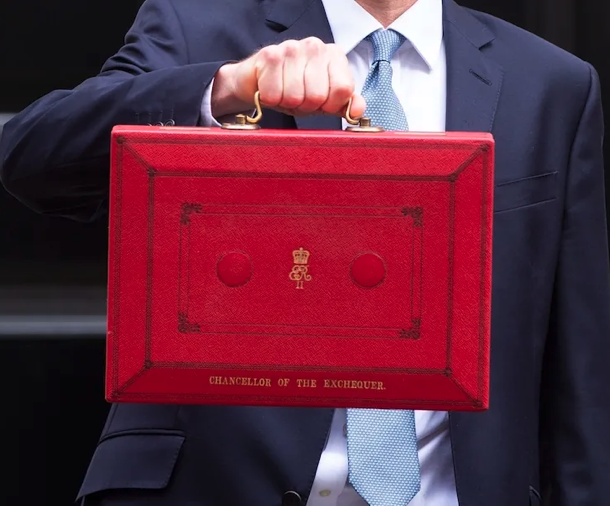The budget at a glance:
• National Insurance, cut by 2pence for employees and the self-employed
• Freeze on alcohol duty to continue until February 2025
• Non-dom tax regime to be replaced with new rules from April 2025
• Full child benefits to be paid to households where highest-earning parent earns up to £60,000 – an increase from £50,000
• Partial child benefit to be paid where highest earner earns up to £80,000
• A new £5,000 Great British ISA tax allowance for individual savers to invest in UK-listed companies
• Doubling of the repayment period for people on benefits taking out emergency budgeting loans
• £90 fee to obtain a debt relief order scrapped, helping thousands of families
• Government fund for people struggling with cost of living pressures to continue for another six months
• Fuel duty frozen extended with 5p increase in fuel duty on petrol and diesel, scrapped year
• “Windfall” tax on the profits of energy firms, which had been scheduled to end in March 2028, extended until 2029
• Higher rate of tax paid on profits from selling property cut from 28% to 24%
• Threshold at which small businesses must register to pay VAT raised from £85,000 to £90,000 from April
• Tax reliefs for touring and orchestral productions, which had to been due to end in March 2025, made permanent
• £120 million for clean energy supply chains and £270 million for automotive and aerospace research and development (R&D) projects
• Covid-era government loan scheme for small businesses extended until March 2026
The Chancellor, Jeremy Hunt has doubled down on National Insurance cuts in today’s budget, hoping that it will boost the dire conservative poll ratings that sees his party languishing on just 20 per cent – the lowest level of support recorded since 1978.
The second cut to National Insurance will see the rate fall to just 8 per cent down from 12 per cent since November, meaning someone earning £25,000 a year will save another £249 a year from the latest change introduced in January, while higher earners will take home an additional £754 a year, according to estimates.
The change will also apply to the self-employed, with Class 4 NI contributions on all earnings between £12,570 and £50,270 cut from a rate of 9 per cent at the beginning of the year to 6 per cent.
Other measures the Chancellor announced included freezing alcohol and fuel duty, raising the VAT threshold from £85,000 to £90,000 for small businesses and changes to the child benefit.
In what was billed as the last big set piece Parliamentary event for the Government to lift its poll ratings, Mr Hunt, repeatedly attacked the Labour Party as being the party of higher taxes, of lacking a plan for the economy or growth, of wanting to “destroy jobs with 70 new burdens on employers” and took a personal swipe at Angela Rayner, Labour’s Deputy Leader after he announced a cut in capital gains tax for higher earners selling residential property – a reference to her tax affairs on a former council house sold in 2015.
He told the House of Commons that the Conservatives will “always put sound money first.”
“Because of the progress we’ve made, because we are delivering the prime minister’s economic priorities, we can now help families not just with temporary cost of living support, but with permanent cuts in taxation.”
He continued saying Conservatives know “lower tax means higher growth. And higher growth means more opportunity, more prosperity and more funding for our precious public services”.
He added: “Instead of going back to square one, the policies I announce today mean more investment, more jobs, better public services, and lower taxes in a Budget for long-term growth.”
Concluding that the measures he was introducing were: “much-needed help in challenging times”.
But the Labour Leader, Sir Keir Starmer, shot back that the budget was “the last desperate act of a party that has failed”. Accusing the Government of maxing out the “national credit”.
He told the packed House of Commons that the Government: “Gives with one hand and takes even more with the other and nothing they do from now until the election will change that,” he said. “The chancellor who breezes into this chamber in a recession and tells the working people of this country everything is on track.”
He also criticised the Chancellor’s proposed changes to the non-dom tax status – a key Labour policy – saying that it showed the Government was “totally bereft of ideas” and questioned why they didn’t do it earlier.
The claims that the budget was tax cutting was also criticised by commentators and economists pointing out that the overall tax level would still rise, reaching the highest level since 1948.
Highlighting the OBR’s forecast, one BBC commentator pointed to a graph that the Government would collect 37.1p of every pound generated in the economy in 2028/29, the highest level in nearly 80 years.
While Paul Johnson, director of the Institute for Fiscal Studies think tank, said that tax had “still risen a lot over this parliament” and low earners would lose out more from frozen tax thresholds than they gain from national insurance cuts.


